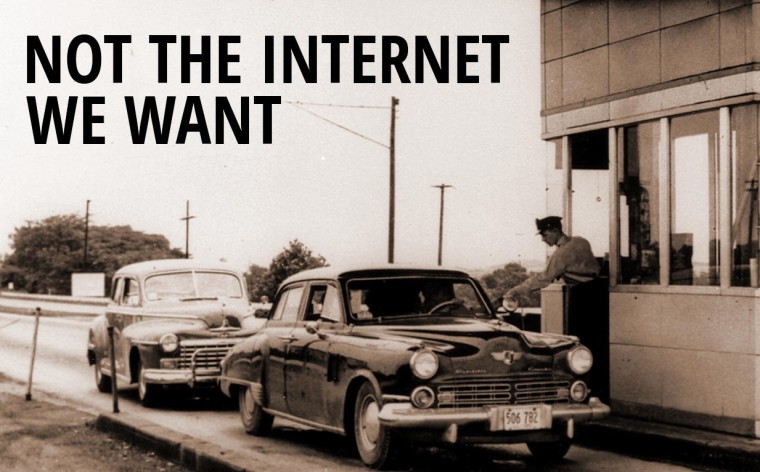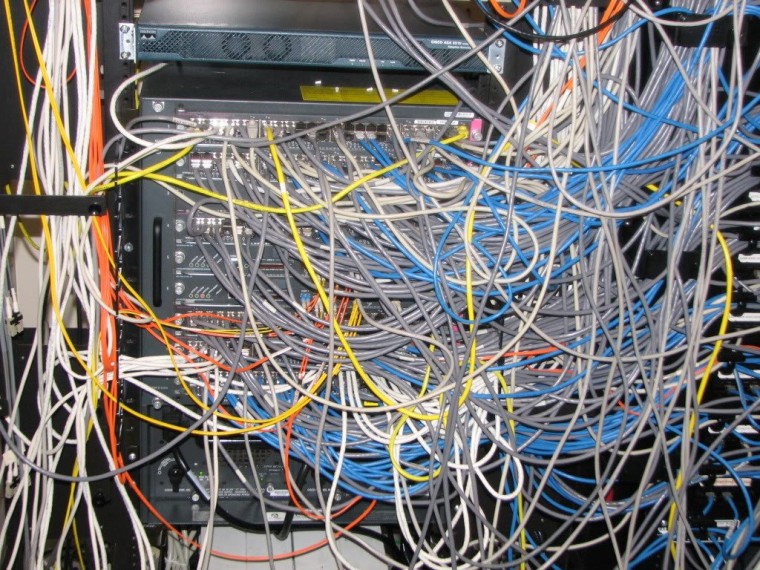
If you haven't heard that the United States is planning to repeal net neutrality in the near future, then you must have been off the grid for a few months because it seems you can't visit a single website without being told that it will be the end of the Internet as we know it, despite the fact that it's only technically been finalized since April, 2015. The common thought is that the big bad ISPs are going to start controlling what information customers are allowed to see and price-gouge them to obtain certain types of content. It's also said that the repeal would stifle innovation from smaller companies. However, these thoughts are all mostly false.
First, it's important to look at which companies are lobbying public support in favor of keeping the new net neutrality rules: Alphabet (Google), Netflix, Amazon, Facebook, and more. Why would these multi-billion dollar companies be in favor of net neutrality? To keep their costs down. Even though these organizations use the majority of the Internet bandwidth, they want everyone to subsidize their usage. Six years ago, for example, Netflix, was using roughly 33% of the Internet's capacity in the United States. What that means is that everyone is indirectly paying for Netflix traffic, even if you aren't a customer. Keeping net neutrality means everyone else will be subsidizing this use. Ironically, people in favor of net neutrality are generally against cable companies bundling channels they don't watch.
How does net neutrality impact innovation and smaller companies like the fictional Mario's Pizza Shop? It doesn't. Mario is a small fish in the pond, and ISPs aren't even going to notice his web server, let alone actively block access to it. It may result in increased fees to companies like Netflix, but if they're using at least a third of the backbone, shouldn't they be required to pitch in a little more for the usage? If ISPs can't charge Netflix extra for use of the network, they will raise everyone's rates instead. Why should Hulu users subsidize Netflix?

The truth is that net neutrality protects the big fish far more than it protects the little fish. It's about Netflix and Google's desire to avoid transit fees and not about having a "fair and open" Internet.
The second issue is that people are worried ISPs will block or throttle what information they get to see, but sadly that's already happening and is being done by the same companies that are lobbying to keep net neutrality in place. For example, Google is currently working on ways to de-rank information from sites it deems as "not reputable," pushing them off of the first page so that most users will never see them. Last year, two-thirds of searches used Google's search engine, so their manipulation can clearly determine what people are reading. Facebook, on the other hand, was found to be manipulating user emotions through what they read on the social media platform. Both of these tactics are controlling the user experience, the same thing proponents of net neutrality are trying to protect.

And it's not only companies like Google and Facebook that are restricting access to information. After the Charlottesville riot, hosting companies began to refuse servicing the Daily Stormer, either refusing to host the content or not allowing the DNS name to be registered. While many believe that this was a good thing, given the content the news site provides, the fact remains that there are already many limitations on what end users are able to view on the Internet and regardless of whether net neutrality is repealed or not will have little bearing on the results.
Lastly, regulation is rarely good for innovation, and nowhere is this more evident than with the same telecommunications regulations that are being used for net neutrality. When the telephone was regulated, innovation was stagnant, customers were forced to use the same rotary phone and were not allowed to make any modifications. Once deregulation occurred, we were given touch-tone phones, speed dialing, caller ID, and later, SMS messages and cell phone service. Innovation thrived.
Putting politics aside, the idea of an open Internet is a good thing, but is only a single piece of the puzzle and nobody is looking to address the overall Internet ecosystem. If you're yelling loudly about equality on the network, but don't have a problem with content companies filtering and limiting what you have access to, and search companies limiting what you can find, you might want to think about the big picture.
Editorial Note: For an opposing Neowin viewpoint, check out "ISPs can't be trusted to uphold net neutrality."

_small.jpg)















136 Comments - Add comment